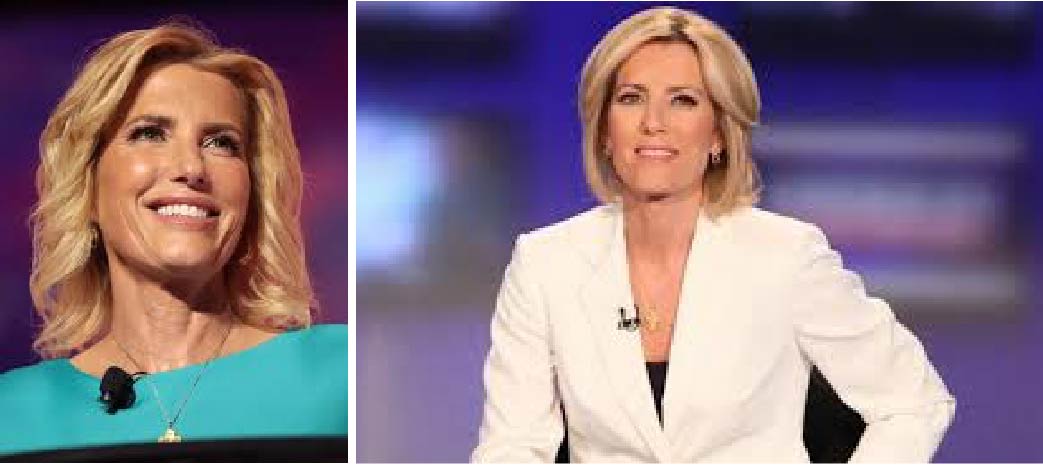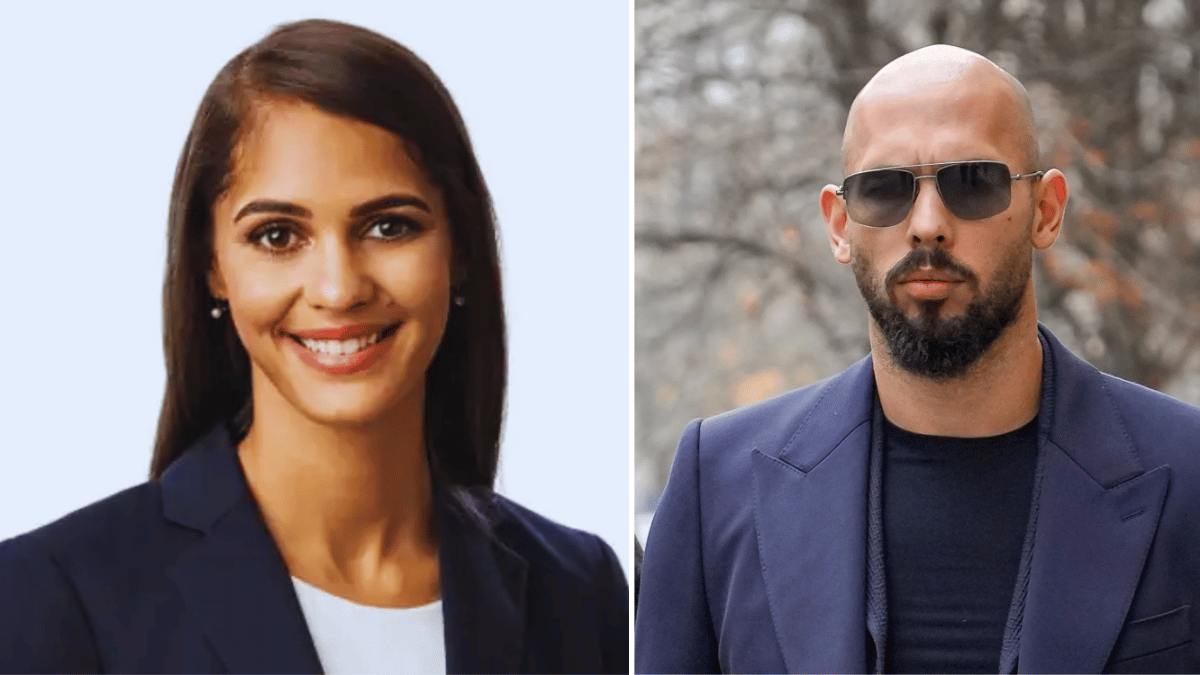Laura Ingraham is a prominent figure in American media and politics, known for her multifaceted career as a conservative commentator, radio host, author, and television personality. Rising to prominence in the 1990s, Ingraham’s articulate and often controversial commentary has made her a polarizing figure in the media landscape.
Personal Details
Age: 61
Husband: Not Yet Married
Networth: $40 million
Children: 3 children (Adopted)
Laura Ingraham’s Net Worth
As of 2024, Laura Ingraham’s net worth is estimated to be around $40 million. This substantial net worth reflects her successful career in media, including her work as a radio host, television personality, author, and political commentator.
Ingraham’s primary sources of income include her syndicated radio show, “The Laura Ingraham Show,” and her Fox News program, “The Ingraham Angle.” Both shows have garnered high ratings and substantial advertising revenue, contributing significantly to her overall wealth.
Rise in Media
A steady rise to prominence and influence marks Laura Ingraham’s journey in the media industry. After earning her law degree, Ingraham’s early career saw her working within the political sphere, including roles within the Reagan administration and as a speechwriter. These experiences provided her with a deep understanding of conservative politics and communication strategies, laying the groundwork for her future endeavors in media. In 2001, Ingraham launched her nationally syndicated radio show, “The Laura Ingraham Show,” which quickly gained traction and became one of the most listened-to radio programs in the country. Known for her sharp wit, incisive commentary, and fearless approach to controversial topics, Ingraham’s radio show solidified her reputation as a leading voice in conservative media.
As her influence continued to grow, Ingraham transitioned to television, becoming a familiar face on Fox News. In 2008, she joined the network as a contributor, providing political analysis and commentary on various programs. In 2017, Ingraham was given her primetime slot with the launch of “The Ingraham Angle.” The show quickly became a staple of conservative media, attracting a loyal audience and consistently high ratings. With her television platform, Ingraham expanded her reach and impact, further cementing her position as a key figure in American media.
Early Life and Education
Laura Ingraham’s journey into the world of media and politics began with her upbringing and academic pursuits. Born on June 19, 1963, in Glastonbury, Connecticut, Ingraham was raised in a middle-class family alongside her siblings. Her father, James Frederick Ingraham III, was a World War II veteran and a career officer in the United States Navy. Ingraham’s upbringing instilled in her a sense of discipline, patriotism, and a strong work ethic, values that would later shape her career.
Ingraham’s academic journey led her to excel in her studies. She graduated from Glastonbury High School and went on to pursue higher education at Dartmouth College, where she earned a bachelor’s degree in English in 1985. During her time at Dartmouth, Ingraham was actively involved in conservative student organizations and developed a passion for political activism. She served as the editor-in-chief of The Dartmouth Review, a conservative student newspaper known for its controversial stance on campus issues.
The Laura Ingraham Angle
Laura Ingraham’s transition from radio to television marked a significant milestone in her career, culminating in the creation of her widely-watched program, “The Ingraham Angle” on Fox News. Premiering in October 2017, the show quickly became a fixture in the network’s primetime lineup, reflecting Ingraham’s ability to connect with a broad audience and deliver compelling conservative commentary. “The Ingraham Angle” focuses on current events, political analysis, and cultural issues, often presenting a perspective that challenges mainstream media narratives and aligns with the views of conservative Americans.
The show’s format includes monologues, guest interviews, and panel discussions, allowing Ingraham to address a wide array of topics with depth and insight. Her monologues, in particular, are known for their sharp critique of liberal policies, media bias, and the political establishment. Ingraham’s legal background and experience in political speechwriting enhance her ability to articulate complex issues clearly and persuasively, making her commentary both accessible and impactful.
Political Influence and Ideology
Laura Ingraham’s political influence and ideology are central to her role as a prominent conservative commentator and media personality. Rooted in traditional conservative values, Ingraham’s political views emphasize limited government, individual liberty, and a strong national defense. Her advocacy extends to issues such as immigration reform, economic nationalism, and cultural conservatism, positioning her as a leading voice in the contemporary conservative movement.
Ingraham’s political ideology is deeply intertwined with her media presence. She consistently champions policies that align with her conservative principles on her show, “The Ingraham Angle,” and through her radio broadcasts and writings. Her stance on immigration is particularly noteworthy; she advocates for stricter immigration controls and policies that prioritize American workers and national security. This position has resonated with a significant segment of the American populace, especially in debates over immigration reform and border security.
In addition to her media commentary, Ingraham has actively participated in political campaigns and movements, further amplifying her influence. She has endorsed and supported various Republican candidates and has been an outspoken advocate for policies and initiatives that reflect her ideological commitments.
Major Controversies
Laura Ingraham’s career has been marked by several significant controversies, reflecting both her prominence in the media and the polarizing nature of her commentary. These controversies have often placed her at the center of public debates, highlighting the contentious issues she addresses and the passionate responses they elicit.
One of the most notable controversies occurred in March 2018, when Ingraham mocked David Hogg, a survivor of the Parkland school shooting and a gun control activist, for being rejected by several colleges. The backlash was swift, with many viewing her comments as insensitive and inappropriate. Hogg called for a boycott of her show, leading to several advertisers pulling their support from “The Ingraham Angle.” Ingraham issued an apology, but the incident underscored the deep divisions in the national conversation about gun control and the role of media figures in shaping that dialogue.
In another instance, Ingraham faced criticism for her comments about immigration. She has frequently taken a hardline stance on immigration policy, advocating for stricter border controls and criticizing what she perceives as lax enforcement of immigration laws. In August 2018, she sparked controversy by suggesting that the demographic changes in the United States due to immigration were altering the country’s culture and identity, a statement that was widely criticized as racially insensitive and xenophobic. While her supporters argue that she is highlighting important issues about national security and cultural integration, her detractors accuse her of promoting divisive and exclusionary rhetoric.
Public Perception and Criticism
Laura Ingraham is a polarizing figure, eliciting strong reactions from both supporters and critics. Her public perception is deeply divided along ideological lines, with her conservative base viewing her as a fearless advocate for their values, while her detractors see her as a provocateur who often crosses the line into divisiveness and insensitivity.
Among her supporters, Ingraham is celebrated for her unwavering commitment to conservative principles and her willingness to challenge the status quo. They appreciate her articulate defense of policies related to immigration control, economic nationalism, and cultural conservatism. For many, she is a refreshing voice in a media landscape they perceive as dominated by liberal viewpoints. Her fans admire her for tackling contentious issues head-on and for providing a platform for conservative ideas that they feel are underrepresented in mainstream media.
However, Ingraham’s approach has also garnered significant criticism. Many view her commentary as inflammatory and believe she frequently engages in fear-mongering and scapegoating. Critics argue that her rhetoric on issues such as immigration and race can be divisive and exclusionary. Her statements on demographic changes in the U.S. and the impact of immigration have been condemned by some as promoting a nativist agenda. These critiques are not limited to her political opponents; even within conservative circles, some feel her style can be too abrasive and counterproductive to constructive dialogue.
Impact on Media and Culture
Laura Ingraham’s impact on media and culture is profound, reflecting her role as a leading voice in conservative media and her ability to influence public discourse on a wide range of issues. Her contributions to the media landscape and her influence on cultural and political debates underscore her significance in shaping the contemporary American zeitgeist.
In the realm of media, Ingraham has been instrumental in advancing the conservative perspective. Through her radio show, “The Laura Ingraham Show,” and her primetime television program, “The Ingraham Angle,” she has provided a platform for conservative ideas and voices that might otherwise be marginalized in mainstream media. Her shows are known for their incisive analysis, bold commentary, and willingness to tackle controversial subjects, which resonate deeply with her audience. By offering an alternative viewpoint, Ingraham has helped to diversify the media landscape, challenging what many conservatives see as a liberal bias in traditional news outlets.
Ingraham’s influence extends beyond her programs. As a frequent guest on other news shows and as a prolific author, she has shaped broader discussions about American politics and culture. Her books, which address issues ranging from political ideology to cultural trends, have further cemented her role as a thought leader in conservative circles. Ingraham’s ability to articulate complex issues in an accessible and engaging manner has made her a trusted source of information and opinion for her audience.
Conclusion
Laura Ingraham stands as a formidable figure in American media and politics, with a career that spans decades and encompasses significant influence and controversy. From her early beginnings in law and political speechwriting to her rise as a prominent conservative commentator, Ingraham has consistently leveraged her platforms to advocate for conservative values and challenge mainstream narratives. Her shows, “The Laura Ingraham Show” and “The Ingraham Angle,” have been pivotal in providing a voice for conservative viewpoints, while her books and public appearances further amplify her impact.
Ingraham’s influence is not without its contentious aspects. Her outspoken views on immigration, cultural issues, and public health have often placed her at the center of heated debates, drawing both staunch support and vehement criticism. These controversies underscore the deeply polarized nature of American society and the media’s role in both reflecting and shaping public sentiment.
FAQs
Q1: Who is Laura Ingraham?
A: Laura Ingraham is a prominent conservative commentator, radio host, author, and television personality known for her sharp political analysis and advocacy of conservative values. She hosts “The Ingraham Angle” on Fox News and has a significant influence on American media and politics.
Q2: What are Laura Ingraham’s political views?
A: Laura Ingraham’s political views emphasize traditional conservative values, including limited government, individual liberty, strong national defense, economic nationalism, and strict immigration controls. She often critiques liberal policies and mainstream media narratives.
Q3: Why is Laura Ingraham a significant figure in American media?
A: Laura Ingraham is significant due to her influential platforms on radio and television, her role in shaping conservative discourse, and her impact on public opinion and policy debates. Her shows reach a wide audience, and her commentary often sparks national discussions.
Q4: What controversies have Laura Ingraham been involved in?
A: Laura Ingraham has been involved in several controversies, including her comments on Parkland shooting survivor David Hogg, her stance on immigration and demographic changes, her opposition to LGBTQ+ rights, and her promotion of unproven treatments during the COVID-19 pandemic.
Q5: How has Laura Ingraham impacted public perception and media culture?
A: Laura Ingraham has impacted public perception by providing a prominent platform for conservative views, challenging mainstream media narratives, and influencing the ideological direction of the conservative movement. Her confrontational style has also contributed to the polarization of American media and culture.





